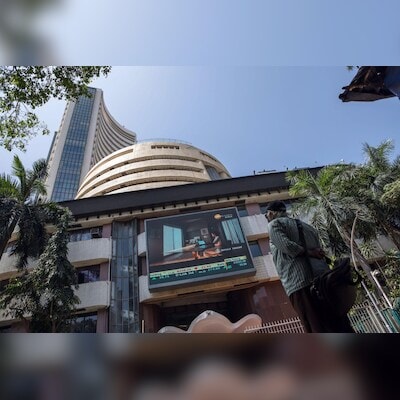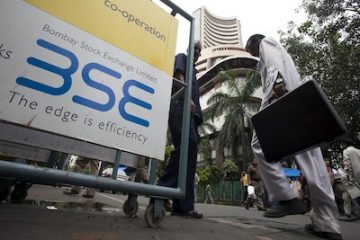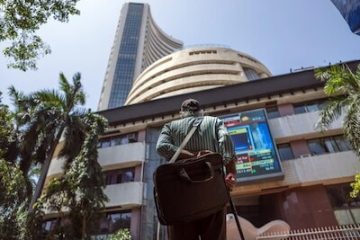The equity market took a precipitous plunge on Tuesday, obliterating Rs 31 trillion of investor wealth, after Lok Sabha election result trends signalled that the ruling Bharatiya Janata Party (BJP) was falling way behind the halfway mark.
During intraday trading, the Nifty 50 plummeted by nearly 1,900 points — a 9 per cent nosedive — while the Sensex shed as much as 6,000 points. The market’s jitters were palpable, with concerns swirling around the composition of the incoming government and its political stability.
The Nifty 50 closed at 21,885 — its lowest level since March 20 — reflecting a drop of 1,379 points or 6 per cent. The Sensex, after bottoming out at 70,234, closed at 72,079, marking a decline of 4,390 points or 5.7 per cent. Foreign Portfolio Investors (FPIs) were net sellers to the tune of Rs 12,436 crore — the highest single day selling by them.
The broader Nifty Midcap 100 and Nifty Smallcap 100 fell by 7.8 and 8.2 per cent respectively. In the run-up to the elections, Prime Minister Modi and several senior ministers had assured investors of a clear majority to the ruling combine, and market rally after the declaration of the results.
)
This market descent was the most severe since March 23, 2020, when the two benchmark indices had plunged 13 per cent in the wake of the spreading Covid-19 pandemic. The sharp selloff also stirred memories of the post-2004 election fallout when the National Democratic Alliance (NDA) had suffered a shock defeat.
On a closing basis, Tuesday’s decline was the worst-ever election result day fall since at least 1999.
The India Vix, a barometer of market volatility, surged by 27 per cent — its highest single-day gain in two years — to 26, hinting at more turbulence on the horizon.
Contrary to exit poll predictions, the BJP had either won or was leading at 240 seats (until 8 pm), short of the 272 majority figure and also way behind the 303 tally that it secured in the 2019 general elections.
The unexpected verdict heralds the return of coalition-era politics, a period spanning from 1989 to 2014, where the incumbent government relied on allies for its survival and legislative success. According to experts, the intense selloff was fuelled by speculation over the potential replacement of Prime Minister Narendra Modi or the formation of a new government by Opposition parties with the backing of some NDA allies.

Andrew Holland, CEO of Avendus Capital Alternate Strategies, said: “The markets will worry about whether policies change and prospects of a more populist tilt going forward.” He underscored the need for a careful re-evaluation of India’s growth prospects in light of the new political landscape, given that these projections were made with a single-party majority government in place.
Echoing Holland’s sentiment, Sunil Tirumalai, equity strategist at UBS, stated: “This was not an election outcome the market valuations were set up for. India valuations have been expensive for ordinary corporate earnings growth/outlook. One of the arguments behind India’s rich valuations could have been the political stability/policy certainty that a strong government gave. Some of those assumptions could come under question.”
All the sectoral indices of BSE, barring that of the defensive fast-moving consumer goods, tanked, with many posting double-digit declines. The market breadth was weak, with 3,427 stocks declining and only 418 advancing. Analysts said the markets may not be out of the woods until there is more clarity on government formation.
Motilal Oswal, group managing director and CEO of Motilal Oswal group, offered a glimmer of optimism. “The markets will be listless for a few days until the government is formed. However, I remain optimistic based on corporate profits and economic growth. The continuity of the government is not going to be disrupted,” he said.
First Published: Jun 04 2024 | 8:26 PM IST
Note:- (Not all news on the site expresses the point of view of the site, but we transmit this news automatically and translate it through programmatic technology on the site and not from a human editor. The content is auto-generated from a syndicated feed.))



